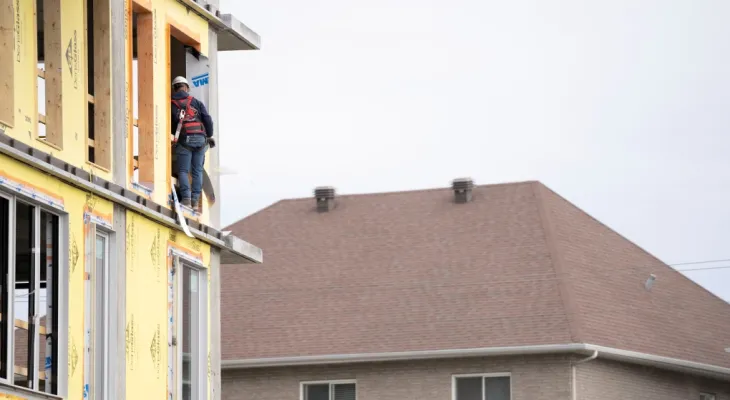Search here
Newspaper
Search here

Arab Canada News
News

Published: September 2, 2023
According to a former Deputy Prime Minister, "the housing crisis in Canada is the result of decades of poor policies stemming from the federal government leaving this issue to the provinces in the 1980s."
Former Deputy Prime Minister Sheila Copps said in an interview with BNN Bloomberg, "When the Canada Mortgage and Housing Corporation (CMHC) was involved in housing construction, there was a significant amount of national investment in housing along with housing policy and strategy."
Copps added, "The decision made in 1987 to exit federal housing led to 30 years of unbuilt housing, and also 30 years of not analyzing good public policy on housing, and I think that's a big problem."
According to Copps, who served as Deputy Prime Minister in the liberal government in the 1990s, housing policy in the 1970s saw direct national government involvement in housing construction, including senior and indigenous housing development. Copps said this changed in the 1980s when provincial governments took over housing policy.
While some provincial governments, like Quebec, decided to allocate funding for social housing, Copps said many other governments did not, adding, "When the provincial governments took over the funds (allocated for housing), they didn't actually spend much of it on housing."
Since then, she said the federal government did not re-engage in housing until 2017 when the liberal government led by Prime Minister Justin Trudeau decided to "insert itself back into the housing game." Copps continued that this step represents the beginning of a cooperation that will take some time to address the shortages and affordability issues currently faced by Canadian cities.
Copps affirmed, "Now, five years later, we are looking at a problem that has been festering since we signed the housing agreement in 1987, and sometimes the national government needs to sit at the table to fix the issues, leaving it up to 10 provinces and three territories is not always the right way."
In addition to building homes to increase supply, Copps said the federal housing strategy must also involve ways to stimulate immigration from the more densely populated areas of Canada.
She continued, "The other thing we need to look at is what housing prices are like in rural and remote communities versus urban areas and how we can encourage people to move. We learned during the pandemic that not everyone has to live in downtown Toronto; there are plenty of opportunities to make people think about migrating elsewhere and perhaps getting bonus points for a registered homeownership investment plan. These things need to be integrated into the thinking, and you really need a national government that is not just looking at building housing."
Comments